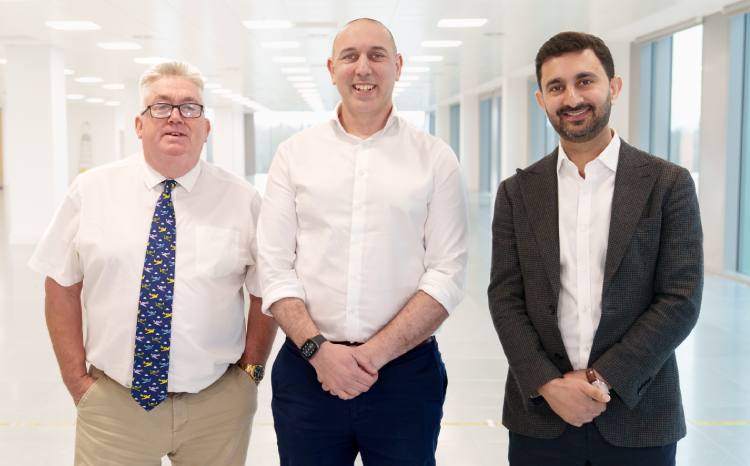Lots done, lots still to do
- 12 November 2013

A simple call for a raise of hands showed the CCIO Leaders Network Annual Conference just how many chief clinical information officers have been appointed over the past year.
At last year’s, inaugural event just a smattering of hands were raised when a call went out for people to identify themselves as CCIOs. This year, a similar call saw multiple arms ceiling-bound.
Time to ask ‘what next’?
The presentations and debates at the 2013 conference reflected a sense of progress, too. There was little conversation over how the CCIO role should be defined: the idea of being an interpreter between clinicians and IT people was taken as a given.
There was also consensus on the skillset required: no need for extensive technological expertise; important instead to be passionate about how better information can improve patient care.
Instead, the focus of the event, which took place last week alongside EHI Live 2013 in Birmingham, was development: what needs to happen next?
This was a theme which arose as early as the opening address to delegates. Professor Jonathan Kay, clinical informatics director at NHS England, was clear that, overall, the CCIO picture is a good one.
However, he was also clear that it is only a snapshot on a journey, and not a portrait of a final destination. “It’s going really well, and we do have a title that people are starting to understand now,” he argued.
“But now we’ve got to get the next generation of CCIOs better trained and qualified than we were when we got off the ground.”
He continued: “Younger clinicians are the greatest opportunity we have. They have applied to university online, got their degrees online, and then we drop them on the wards and they say: ‘what’s a clipboard?’
“You have a small window of opportunity, because if you don’t engage them at that point, they will fall back into paper-based systems.”
What is the career path for the CCIOs of the future?
A session chaired by Dr Wai Keong Wong, specialist registrar in haematology at Great Ormond Street Hospital for Children NHS Foundation Trust, focused specifically on this issue. ‘So you want to be a CCIO?’ asked how those young clinicians were going to become the CCIOs of the future.
“It raises the question as to whether there’s a place for professionalising the whole role,” mused Dr Mike Fisher, CCIO at Royal Liverpool and Broadgreen University Hospitals NHS Trust.
He pointed out that, in the US, board certification in informatics has recently been introduced. Could a similar move be beneficial in the UK?
Yes, he argued, encouraging more junior practitioners to “promote the idea of professionalising the role – I think it’s worthwhile and will provide a career structure.”
The idea was one that was not universally supported, however. “I think we need to be careful not to separate ourselves too much from other aspects of clinical care,” argued Jo Dickson, lead nurse for informatics at Leeds Teaching Hospitals NHS Trust.
“We don’t want to distance ourselves and make ourselves purely clinical informatics – I think we want to blend in with the normal business of working as clinicians. I worry about us moving too far and making us too separate from day to day clinical care.”
Working across organisations – and regions
David Davis, clinical informatics advisor for NHS England, emphasised that the focus should not solely be on the CCIO role in any case.
“The CCIO role is the top job,” he pointed out. “We need people interested in informatics at all levels. The number of CCIO posts will be limited, and so not everyone can be a CCIO.
“We need to be having conversations in every ward, every ambulance, every science lab, about how to improve things with technology and better use of information.”
It was frequently argued that such conversations will need to cross organisational boundaries. In a session giving an international perspective on the CCIO role, three individuals working in clinical informatics in the United States emphasised the importance of building networks of those in the field.
“We have a regional CMIO group – a group of physicians who are vendor-agnostic but recognise they really have a lot of the same challenges, regardless of the tools they’re using,” explained Dr Julie Massey, CMIO and paediatrician at Albert Einstein Healthcare Network in Pennsylvania.
“It’s an opportunity to exchange information with people in the same market and same area and it has been a significant help for all of us as the role evolves.”
Still pioneers
Her last point was an important one. While delegates often marvelled at how far ahead the US seems to be when it comes to the CCIO role, Dr Daniel O’Donnell, senior advisor for medical informatics at InterSystems, had some words of reassurance.
“We’re all pretty new at this” he pointed out. “It really is a new medical specialty we’re creating and that’s exciting but also mystifying in some ways. Many of us start these jobs and we don’t really know what we’re doing; we’re making it up as we go along.
“But all of us in this role, we’re all pioneers. It’s a tremendously great adventure in healthcare. I missed out on aseptic surgery, missed out the early stages of imaging, but I’m right here in what I think is another transformational movement in healthcare.”




